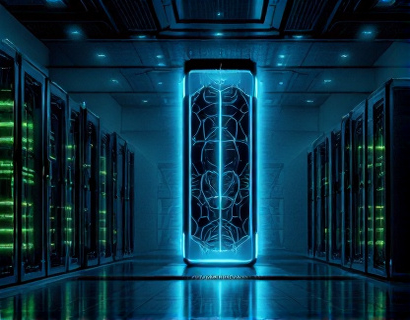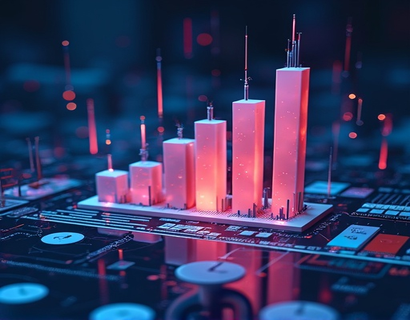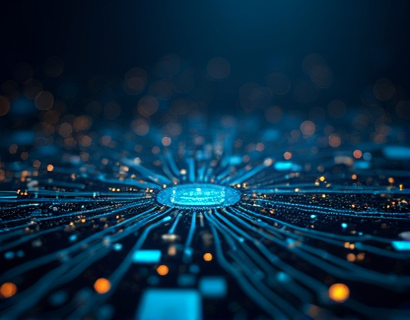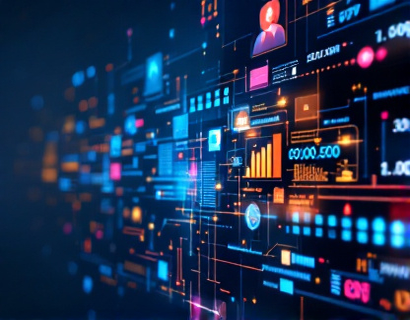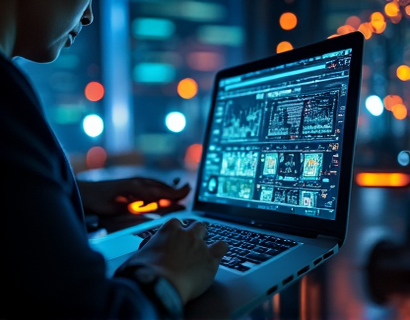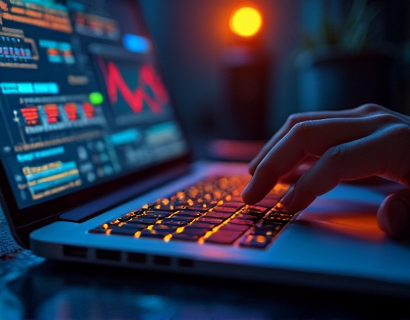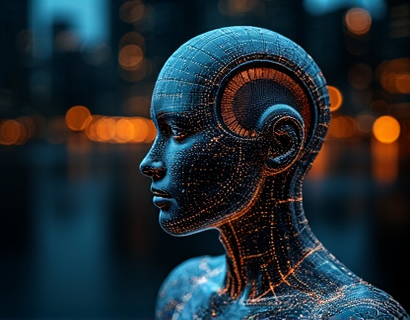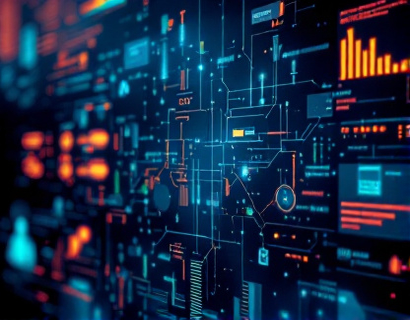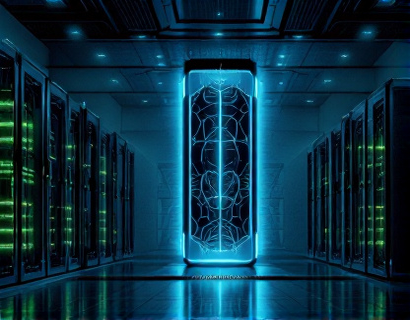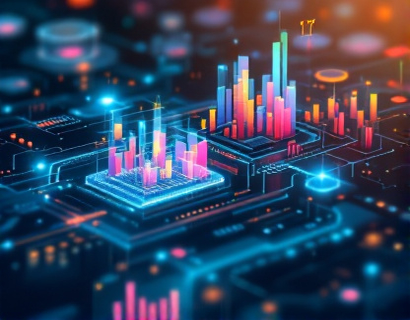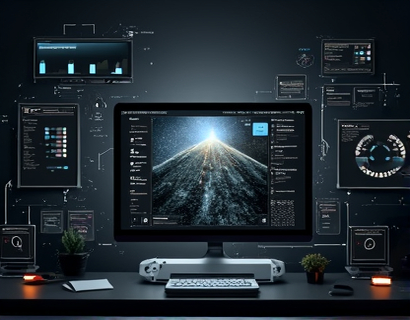Unleashing the Future of Productivity with Crypto and AI
The intersection of cryptocurrency and artificial intelligence (AI) is paving the way for a new era of productivity tools that are redefining how tech-savvy professionals and early adopters approach their work. This article delves into the synergy between these two transformative technologies, exploring how they can be harnessed to maximize efficiency and streamline tasks in the digital age.
The advent of blockchain technology has introduced a decentralized and secure way to conduct transactions, manage data, and verify identities. When combined with the capabilities of AI, the potential for innovation becomes immense. AI can process vast amounts of data, learn from patterns, and make predictions or decisions with minimal human intervention. When applied to blockchain-based systems, AI can enhance security, automate processes, and provide insights that were previously unattainable.
Enhancing Security with AI and Crypto
One of the primary advantages of using cryptocurrency in conjunction with AI is the heightened security it offers. AI algorithms can monitor blockchain networks in real-time, detecting and mitigating potential threats such as fraudulent transactions or cyber attacks. Machine learning models can analyze patterns and anomalies, providing a proactive defense mechanism that traditional security systems often struggle to match.
Smart contracts, self-executing contracts with the terms directly written into code, can also benefit from AI integration. AI can ensure that the conditions of smart contracts are met accurately and efficiently, reducing the risk of errors or malicious activities. This not only enhances the reliability of transactions but also builds trust among users in decentralized applications.
Automating Routine Tasks with AI
AI-driven tools can significantly reduce the time and effort required to perform routine tasks, allowing professionals to focus on more strategic and creative work. For instance, AI-powered chatbots can handle customer inquiries, schedule appointments, and provide basic support, freeing up human resources for more complex tasks. In the context of cryptocurrency, AI can automate trading strategies, manage wallets, and monitor market trends, providing valuable insights and executing trades with precision.
Robust AI algorithms can also optimize the management of digital assets. For example, AI can analyze market data to identify the best times to buy or sell cryptocurrencies, taking into account various factors such as market sentiment, historical data, and economic indicators. This level of automation not only increases efficiency but also helps in making more informed decisions.
Streamlining Workflows with Blockchain and AI
The combination of blockchain and AI can revolutionize workflows across various industries. In supply chain management, for instance, blockchain provides a transparent and immutable record of transactions, while AI can analyze this data to predict delays, optimize routes, and ensure compliance with regulations. This synergy ensures that supply chains are not only more efficient but also more resilient to disruptions.
In the realm of project management, AI can integrate with blockchain to create decentralized platforms where tasks are assigned, tracked, and completed transparently. AI can monitor progress, identify bottlenecks, and suggest optimizations, ensuring that projects stay on track and within budget. This level of integration fosters collaboration and accountability, leading to higher productivity and better outcomes.
Personalized Productivity Tools
AI-driven productivity tools can be tailored to individual needs, providing a personalized experience that enhances efficiency. By analyzing user behavior and preferences, AI can recommend custom workflows, suggest time management techniques, and even predict potential roadblocks before they occur. This level of personalization is particularly beneficial for professionals who handle diverse and complex tasks.
In the context of cryptocurrency, AI can help users manage multiple digital assets more effectively. For example, AI-powered wallet applications can categorize transactions, track spending, and provide budgeting insights. Users can receive alerts for unusual activity or potential security risks, ensuring that their digital assets are always secure and well-managed.
Data Analytics and Decision Making
One of the most significant benefits of combining AI with blockchain is the advanced data analytics capabilities it offers. AI can process and analyze large datasets from blockchain networks, extracting meaningful insights that can inform strategic decisions. This is particularly valuable in industries such as finance, where understanding market trends and consumer behavior is crucial for success.
For instance, AI can analyze transaction data to identify patterns in cryptocurrency usage, helping businesses tailor their services to meet the needs of their target audience. This data-driven approach ensures that decisions are based on accurate and up-to-date information, reducing the risk of errors and increasing the likelihood of success.
Decentralized Identity Management
AI and blockchain can also transform identity management, providing users with greater control over their personal data. Decentralized identity solutions allow individuals to manage their digital identities securely and privately, using blockchain to store and verify identity credentials. AI can enhance this process by ensuring that identity checks are accurate and efficient, reducing the risk of fraud and enhancing user trust.
This level of control is particularly important in an era where data breaches and privacy concerns are rampant. By leveraging AI and blockchain, users can maintain ownership of their data while still benefiting from the convenience of digital services. This balance between security and usability is a key factor in the adoption of these technologies.
Challenges and Considerations
While the potential benefits of integrating AI and blockchain are substantial, there are also challenges that need to be addressed. One of the primary concerns is the technical complexity involved in implementing these technologies. Both AI and blockchain require specialized knowledge, and the integration of the two can be even more intricate.
Another consideration is the regulatory landscape. As these technologies evolve, governments and regulatory bodies are beginning to take notice, introducing frameworks and guidelines to govern their use. Compliance with these regulations is essential to ensure that applications are legal and ethical.
Additionally, there is the issue of scalability. While blockchain and AI can handle significant amounts of data, there are still limitations in terms of processing speed and storage capacity. As the adoption of these technologies grows, addressing these scalability issues will be crucial for widespread implementation.
Future Prospects
The future of productivity in the digital age is bright, with AI and blockchain continuing to drive innovation and efficiency. As these technologies mature, we can expect to see even more sophisticated tools and applications that further enhance productivity. The integration of AI with blockchain is just the beginning, and the possibilities are endless.
For tech-savvy professionals and early adopters, embracing these technologies can provide a competitive edge in their respective fields. By leveraging the power of AI and blockchain, they can streamline their workflows, make data-driven decisions, and create value in ways that were previously unimaginable. The journey towards a more productive and secure digital future has begun, and the tools are here to make it happen.





